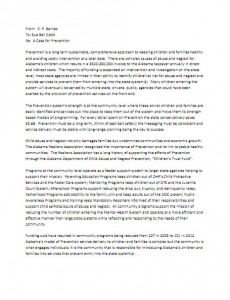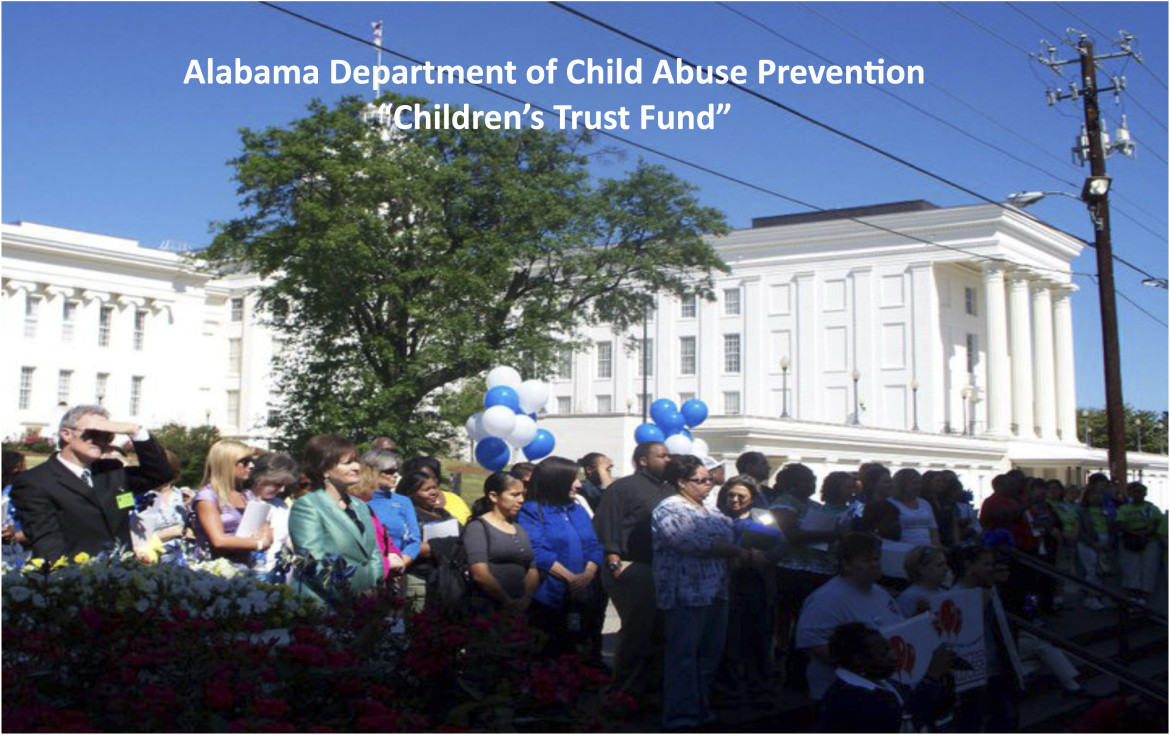 Alabama’s only agency designated to prevent child abuse and neglect, among the many juvenile justice departments around the nation grappling with a smaller budget, will serve nearly half the number of kids in 2012 as they did in 2011.
Alabama’s only agency designated to prevent child abuse and neglect, among the many juvenile justice departments around the nation grappling with a smaller budget, will serve nearly half the number of kids in 2012 as they did in 2011.
The Department of Child Abuse and Neglect Prevention (DCANP) is preparing to cut 74 community-based programs around the state when the new budget takes effect October 1. The cuts bring the total number of programs to just 101 for FY 2012, compared to 227 funded in FY 2005.
The reduction in services represents roughly 14,000 kids that will no longer have access to community-based prevention programs.
“I’m really concerned with the burden of the system as a whole,” says Kelley Parris-Barnes, director of the DCANP. “When you take the community-level programs out you don’t have the capacity in the state to do it.”
The DCANP doesn’t deliver services directly. Rather, the department funds a variety of community-based prevention and education programs. According to Barnes, community members have the capacity and cultural relationship to identify at-risk children long before state-level agencies are able to.
The financial challenges facing the department and the state as a whole are not much different than those facing local governments throughout the United States. Texas, Idaho, Louisiana and many others have witnessed a reduction in juvenile related services.
“There’s not a state, county or city not making the same evaluation with the current budget situation we’re in,” says state Rep. Jack Williams, the Republican chair of Alabama’s Children and Senior Advocacy Committee, adding the committee plans to look at the effectiveness of existing programs and set benchmarks for the future.
“If an agency is serving children in need and doing an effective job I want to do everything I can to support them in the greatest capacity the state has, but we’re going to have to set some benchmarks,” Williams says. “At some point there is going to have to be a line and if you fall below it, the state is not going to be helping [with funding] anymore.”
The DCANP has already seen some steep state-level cuts in writing. When the budget takes effect at the beginning of October the agency will lose nearly 75 percent of its funding from the state’s General Fund and almost a third from Alabama’s Education Trust Fund.

A letter 'for prevention' to Sue Bell Cobb. Click to download.
Also gone completely is $1.5 million in federal money to fund the Mentoring Children of Prisoners program, and roughly $200,000 from other federal funding.
“The Department of Child Abuse and Neglect Prevention should be the last thing cut in the state budget because of the far-reaching consequences for the safety of children,” says Sue Bell Cobb, former Alabama Chief Justice and long-time child advocate.
In a letter to Cobb, DCANP director Parris-Barnes outlined the effectiveness of community-based prevention programs, citing the fact that every dollar spent on child preventative services represents a minimum of $5.68 in state savings.
In the interim, the department and other child advocacy groups in the state are looking to keep programs afloat through a variety of measures. The DCANP has been holding sustainability meetings with program leaders from around the state to outline the impact of specific cuts to each district. Among the topics were tactics for pursuing outside funding and getting children into alternative programs.

Click for budget cut's impact by district
Alabama’s Children First Foundation is drawing plans to advocate for an increased tobacco tax in an effort to drum up additional funding for child services in the state.
“All child advocates in Alabama are extremely concerned about the reduction in funding to the Department of Child Abuse and Neglect Prevention and other child services,” Cobb said. “There’s still so much to be done because we’ve really never had the adequate funding or appropriate priority put on these [prevention] programs.”
In 2009, the last year data was available, Alabama ranked 46th among the states of children living in poverty, according to the Census Bureau.
Alabama's governor's office was unavailable for comment prior to deadline.
